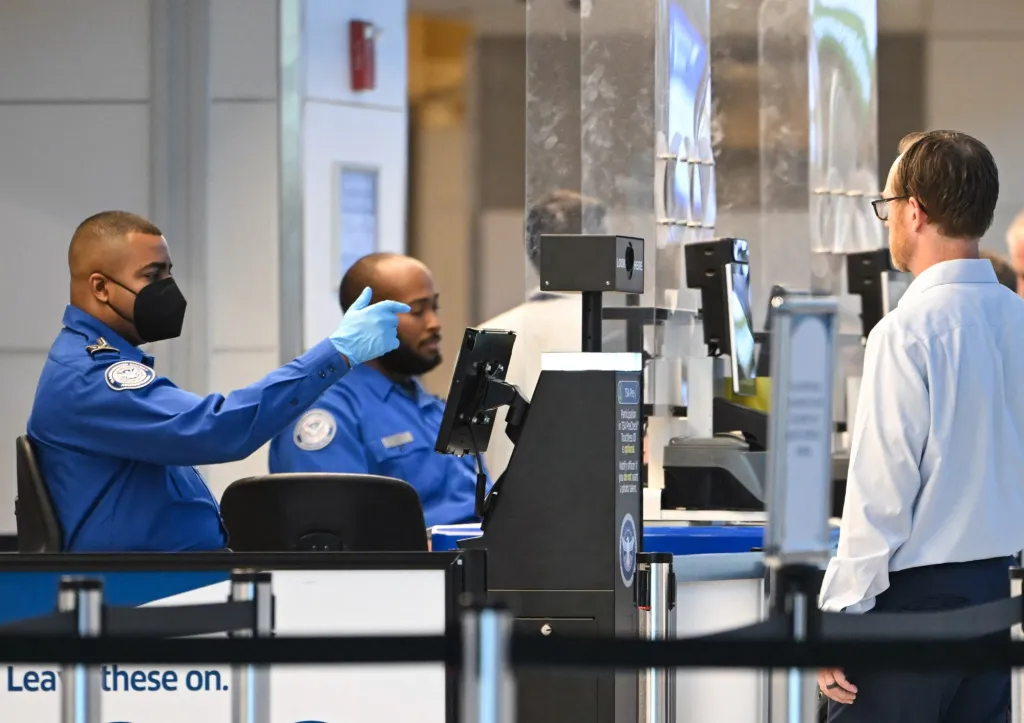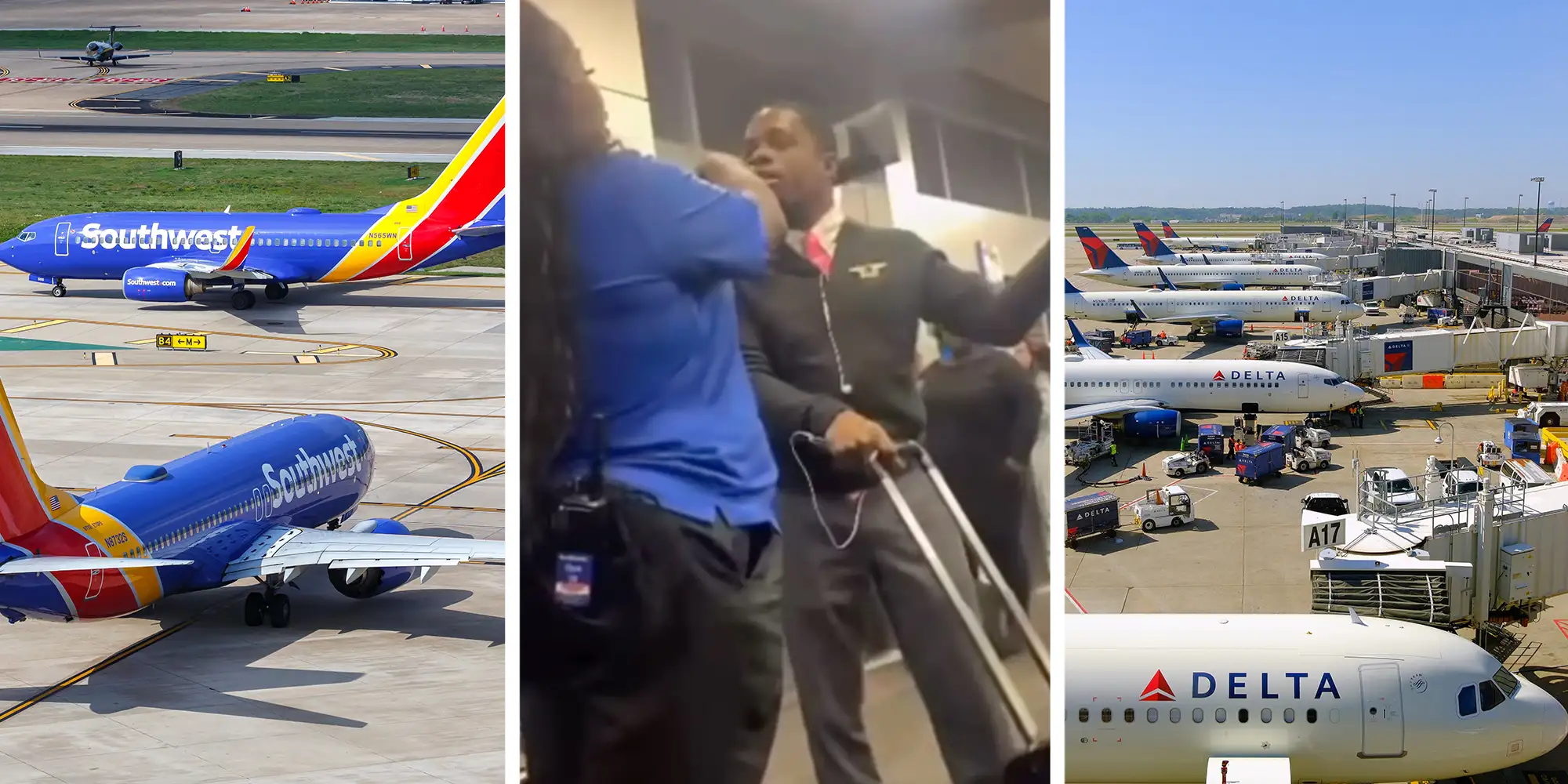Copyright Norfolk Virginian-Pilot

RICHMOND — Some airports are experiencing an increase in flight delays and cancellations amid the government shutdown that furloughed workers or required them to work without pay. Over 11,000 Federal Aviation Administration employees were furloughed, according to the U.S. Department of Transportation federal government shutdown plan. Over 13,200 air traffic controllers will work without pay. Virginia is one of the states with the highest number of air traffic controllers, with approximately 1,110 employed, according to May 2023 data from the U.S. Bureau of Labor Statistics. Overall, the federal government employs 147,358 Virginians, according to the Partnership for Public Service. The Transportation Security Administration, or TSA, employs 64,000 workers which includes essential workers who must work without pay. TSA stated it has not yet experienced delays in operation due to callouts. TSA and other federal workers saw their first zero paycheck on Oct. 24, according to Forbes. “TSA will continue operations to keep the traveling public safe,” a TSA spokesperson stated. “While TSA is prepared to continue screening about 2.5 million passengers a day, an extended shutdown could mean longer wait times at airports. We kindly ask for our passengers’ patience during this time.” The FAA slows traffic in some airports to mitigate issues with staffing shortages, according to U.S. Secretary of Transportation Sean Duffy. Virginia airports, including Dulles and Richmond international airports and Roanoke-Blacksburg Regional Airport say there have not been significant impacts, such as abnormal delays due to the shutdown. “To date, the essential federal workers at RIC including TSA, FAA, and USCBP, have remained on the job,” stated Troy Bell, spokesperson for Richmond International Airport. “The airport wishes for a speedy resolution so the shutdown can end.” Flights to and from Richmond were delayed 52 times on Oct. 27, according to Flight Aware, a flight tracking platform. Roanoke-Blacksburg Regional Airport experienced 15 delays. There were 133 at Dulles International Airport. Nationally, Southwest Airlines saw 34% of flights delayed, American Airlines 29%, Delta Air Lines 22% and United Airlines 19%, according to Reuters. These three airports have not seen much fluctuation in overall delays in the past two years, according to the DOT. Mike Christine is the eastern regional vice president for the National Air Traffic Controllers Association. There were already staffing shortages prior to the shutdown. The biggest concern during the shutdown is air traffic controllers not being paid, according to Christine. Delays can also be attributed to other factors, such as weather conditions and changing airline schedules, which are unrelated to the shutdown, Christine said. “I think right now in the government shutdown, there’s so much focus on air traffic control,” Christine said. “It’s just putting a spotlight on how fragile our system is.” Current delays and cancellations are not out of the ordinary, but things could change if the shutdown continues, said Christine Hardenberger, owner of Modern Travel Professionals. “There’s always delays, there’s always cancellations,” Hardenberger said. “That’s just part of air travel today, but we haven’t seen any sort of spike since the shutdown.” TSA saw a 7% increase in unscheduled absences of TSA agents from the previous year during the late 2018 to early 2019 government shutdown, according to the Partnership for Public Service. This caused an increase in the time travelers spent in airport security lines. The media focuses on air travel during the shutdown because it impacts many people. However, travelers should not be concerned, according to Hardenberger. “I think travelers need to be aware that things could change at any time and so they need to plug into more direct sources of information,” Hardenberger said. Federal workers continue to ensure traveler safety. They will eventually feel the strain of a slower, less efficient system since employees are working without pay, according to a spokesperson for Airlines for America, an industry association. “We urge elected leaders to act with urgency and in good faith to identify a solution that will reopen government,” the Airlines for America spokesperson stated. “Travelers, the shipping public and the dedicated federal employees who protect and maintain our nation’s aviation system deserve continuity.” The Government Employee Fair Treatment Act was passed in 2019, following the 34-day government shutdown that started in 2018. The legislation guarantees retroactive pay for federal employees impacted by a shutdown. Capital News Service is a program of Virginia Commonwealth University’s Robertson School of Communication. Students in the program provide state government coverage for a variety of media outlets in Virginia.



